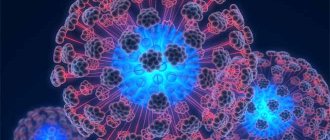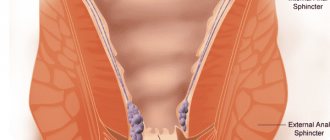Share:
Feeling tired? Having trouble concentrating on tasks? Have trouble sleeping? Your body probably produces little of the neurotransmitter dopamine, the so-called “pleasure hormone.” From the article you will learn what role dopamine plays in the body and how to increase its level if there is a deficiency of this substance.
Dopamine: what is it?
Dopamine is a chemical substance (neurotransmitter) produced by the brain and adrenal glands that is involved in the transmission of nerve impulses, as well as in the synthesis of another known hormone, adrenaline. A surge of the latter causes an increase in breathing and heart rate in the body, a rush of blood to the skin and muscles.
Content:
- Dopamine: what is it?
- Functions in the body
- Why is dopamine deficiency dangerous?
- Excess dopamine is also harmful
- Dopamine and the formation of addictions
- Why does dopamine deficiency occur?
- How to Increase Dopamine Levels
The release of dopamine also occurs in situations of shock to a person, during times of severe stress or pain. In such cases, it helps to adapt to extremely difficult conditions - it prevents you from dying from pain or fear. In addition, the hormone is responsible for regulating sleep cycles and human cognitive abilities.
Neurophysiologists classify dopamine as a group of transmitters - substances that are responsible for transporting signals between brain cells. That is, thanks to dopamine, the impulse is transmitted from neuron to neuron - a kind of cell language.
But why is this hormone credited with such a wide range of actions? It turns out that the effect of dopamine on the body depends on a variety of factors, including what other transmitters dopamine comes into contact with during impulse transmission.
Dopamine is responsible for the incentive to do something and closely interacts with the so-called reward system, which scientists have found in the human brain. To understand how this system works, it is enough to remember the well-known carrot and stick method, when after praise a person feels joy and desire to do something even better. In addition, dopamine affects the centers of the brain responsible for memory, curiosity and learning.
Side effects
Digestive tract:
- dyspepsia;
- vomit;
- nausea.
The cardiovascular system:
- chest pain;
- cardiopalmus;
- instability of blood pressure;
- expansion of the QRS complex;
- conduction disorders;
- arrhythmias (supraventricular, ventricular);
- vasospasm.
Nervous system:
- mydriasis;
- migraine headache;
- motor restlessness;
- anxiety.
Other reactions:
- piloerection;
- bronchospasm;
- dyspnea;
- polyuria;
- azotemia;
- necrosis of the skin (in case of contact with the skin).
Functions in the body
Experts are still continuing to study what functions dopamine performs in the human body. Below we consider the most famous theories.
- Responsible for the feeling of pleasure. When dopamine interacts with the center of the reward system, a person experiences feelings of joy, pleasure and relaxation.
- Forms motivation. Experts have discovered that dopamine not only activates the reward system, causing a feeling of pleasure as a result of an action, but also gives impetus to this action. Thus, dopamine helps create and maintain motivation. Therefore, if the body lacks the hormone, a person’s motivation decreases or anhedonia develops (a condition in which the ability to experience pleasure is lost).
- Improves cognitive function, learning and memory. Many experts believe that dopamine is one of the key factors responsible for memory and learning processes. It turns out that this hormone helps a person remember new information more easily. And all because it is able to strengthen the connection between the nucleus accumbens and other centers of the brain responsible for memory. There is also another theory that explains the effect of dopamine on learning ability. It has been proven that some people (especially women) tend to remember information more easily if it evokes certain emotions. And since dopamine affects the centers of the brain responsible for the emotional state, this makes it useful for learning. In addition, it has been proven that dopamine is also the basis of associative learning.
- Arouses curiosity. Curiosity can be regarded as a kind of internal motivator, pushing you to look for answers and learn more new things. In other words, thanks to healthy curiosity, a person develops a desire for learning, research, and self-improvement. And dopamine is also responsible for this desire. Interestingly, curiosity is closely related to a person’s ability to remember. The fact is that in both cases the hormone affects the same centers of the brain. Therefore, people tend to remember information obtained out of curiosity easily and for a long time (even if it is not so important to them).
- Reveals creative potential. Scientists have discovered a connection between dopamine and creativity. Although it was also discovered that in people with very pronounced creative abilities, dopamine receptors are in many ways similar to the receptors of people suffering from schizophrenia. It turned out that the former and latter had a lower density of dopamine receptors in the thalamus (the area of the brain that filters received information, as well as participates in the processes of reasoning and cognition). That is, due to less filtering, more information enters the brain of such a person. That is why, at the time of decision-making, creative individuals offer many unusual options, and schizophrenics have associations that are strange for healthy people.
- Impact on character. According to the results of many studies, dopamine influences a person’s level of impulsiveness and is also responsible for the desire for new sensations. The higher the activity of dopamine receptors, the more impulsive a person is. Such people are more prone than others to risky behavior, as well as various kinds of addictions.
- Helps fight cancer. This opinion was expressed by experts from Ohio State University (USA). A team of scientists led by Sujit Basu discovered that dopamine slows the growth of blood vessels within a malignant tumor. Since the vessels for cancerous formations serve as a source of nutrition, along with stopping the growth of capillaries, the growth of the malignant tumor also stops. In addition, scientists said that dopamine can alleviate the negative side effects of 5-fluorouracil, which is used in chemotherapy. In particular, the hormone prevents changes in the blood formula after therapy with this substance.
- Prevents myopia. Several years ago, a group of specialists from Australia stated that the cause of myopia in modern youth may be a lack of dopamine. According to scientists, nowadays people spend more and more time on computers and smartphones, and are less and less on the street, and this is the main cause of myopathy. The fact is that under the influence of bright daylight, dopamine is produced in the retina of the eyes. When a person spends less time in the sun, the hormone is produced in insufficient quantities, which causes elongation of the eyeball and, accordingly, myopia.
Serotonin Information
Serotonin is a neurotransmitter that helps a person feel increased worth, self-confidence, and importance. A deficiency of this neurotransmitter can lead a person to depression, suicidal states, as well as addictions (alcoholism, drug addiction). A lack of this substance in the body can provoke a person to commit criminal acts. Many pharmaceutical antidepressants contain this hormone.
Initially, serotonin is a neurotransmitter that transmits impulses from the brain to nerve cells, and it becomes a hormone after entering the lymph.
In one study on marmosets, researchers found that the leader had elevated levels of serotonin. But if the leader of the pack was placed in another cage and he lost power over other primates, then the level of serotonin in his blood dropped sharply.
Why is dopamine deficiency dangerous?
With a lack of dopamine, people tend to experience increased anxiety, loss of motivation, they suffer from boredom and depression, they stop feeling pleasure from life, and they stop enjoying things that previously brought them pleasure. Such individuals lack ambition and healthy drive, and they do not have the ability to form long-term attachments. Against the background of dopamine deficiency, libido decreases, erectile dysfunction is possible, the risk of diabetes and obesity increases, sleep problems, forgetfulness, and fatigue appear even in the absence of physical activity.
Dopamine deficiency can be the cause of various diseases, including phobias, major depression, hyperactivity disorder and attention deficit disorder, Parkinson's disease and some other disorders associated with impaired cognitive abilities. But if the cause of Parkinson's disease is the degradation of parts of the brain that are responsible for producing dopamine, then other disorders are the result of a direct deficiency of the hormone itself. Therefore, therapy for such disorders involves taking drugs that increase dopamine levels. But in medical practice, increasing the hormone is a strictly controlled process. Incorrect therapy can cause addiction in the patient and increase the amount of the hormone in the body to toxic levels.
Interaction
Pharmacological incompatibility is observed in relation to alkaline solutions, thiamine, iron salts, oxidizing agents.
Medicines that enhance the sympathomimetic effect of Dopamine:
- MAO inhibitors (Procarbazine, Furazolidone, Selegiline);
- adrenergic stimulants;
- Guanethidine.
Diuretics enhance the diuretic effect. The cardiotoxic effect is enhanced by the simultaneous administration of drugs for general anesthesia, Methoxyflurane, Halothane, Cyclopropane , tricyclic antidepressants.
Drugs whose hypotensive effect is reduced during treatment with Dopamine:
- Methyldopa;
- Mecamylamine;
- Guanadrela;
- Rauwolfia alkaloids.
Levodopa can provoke arrhythmia.
Oxytocin, Ergotamine, Ergometrine and Methylergometrine enhance the vasoconstrictor effect and increase the risk of gangrene and ischemia, malignant arterial hypertension (in severe cases, intracranial hemorrhage is recorded).
Bradycardia and arterial hypotension are recorded with simultaneous therapy with Phenytoin. Joint therapy with cardiac glycosides is possible.
Excess dopamine is also harmful
It would seem that there is no such thing as too much happiness, which means that the hormone that causes this feeling is useful in any quantity. But this is a mistaken opinion. Excessively high levels of dopamine can cause various mental illnesses. Most often these are schizophrenia and bipolar disorders. To treat such patients, drugs that inhibit the activity of the hormone are used. In addition, an excess of this substance makes people overly impulsive, aggressive, prone to mania, psychosis, fetishism, unhealthy risk-taking, and sexual addiction.
Dopamine and the formation of addictions
The basis of any type of addiction always lies in the brain and, in particular, in the activity of dopamine. It takes some time for addiction to form. A person first performs some action, which is associated with a surge of dopamine, and he feels pleasure. If this chain is repeated several times, a person becomes addicted - he repeats the same actions that are a source of pleasure for him. Interestingly, this circuit was embedded in the human brain during the process of evolution as one of the mechanisms promoting self-preservation. For example, eating food is necessary to maintain vitality, sex is necessary for procreation.
But if dopamine is synthesized in excess, the brain eventually stops responding to it. As a result, the pleasure from this or that activity decreases. Therefore, people with bad habits, in their desire to experience pleasure of the same intensity, must constantly increase the dose of the source of joy. But what is important to understand is that dopamine itself does not cause addiction to, for example, drugs. This hormone keeps you motivated to find a source of joy. And several other mechanisms are directly responsible for the formation of dependencies.
Something similar (but without the physical addiction) happens to people who try to deal with stress or bad mood by eating, shopping, or other pleasurable activities. But as scientists have noted, in such cases, dopamine levels can rarely rise to dangerous levels.
Contraindications
According to the instructions for use of Dopamine, absolute contraindications include:
| Diagnosis | Consequences of drug administration |
| Pheochromocytoma (malignant tumor of the adrenal gland) | Hypertensive crisis |
| Arrhythmias of any kind | Heart block or arrest |
| Bronchial asthma | Cessation of breathing, death |
| Thyrotoxicosis (Increased secretion of thyroid hormones) | A sharp increase in blood pressure (BP) |
Dopamine preparations are not prescribed for prostate adenoma, hypersensitivity to the active substance, as well as during pregnancy and lactation. Their effects on the fetus and newborns have not been studied.
Why does dopamine deficiency occur?
Various factors can lead to a lack of this hormone. For example:
- poor nutrition;
- chronic stress;
- hormonal imbalance;
- taking drugs that suppress the production of dopamine;
- drug addiction.
In addition, the production of the pleasure hormone deteriorates in old age. And this partly explains the decline in cognitive function in older people.
How to Increase Dopamine Levels
It has been scientifically proven that any activity that brings pleasure to a person is a good way to increase the amount of dopamine in the body. The exception is drug addiction, alcoholism, tobacco addiction, outbursts of aggression and violence, even if the person experiences pleasure from it.
Doing what you love and the amount of dopamine in the body is a kind of vicious circle. For example, a person is interested in floriculture. This activity gives him a surge of dopamine. In turn, the increase in the pleasure hormone encourages him to repeat actions associated with his favorite activity again and again.
A similar thing happens in the body of gourmets. Eating your favorite treat activates the production of dopamine. But what’s interesting is that, as a rule, active production of the hormone is caused by far from the most beneficial foods for health and figure. For a few people, the amount of dopamine increases from eating broccoli or steamed cutlets, but most will enjoy chocolate, smoked meats and other not very healthy foods. But this does not mean that in order to increase the hormone you should become a slave to your harmful gastronomic preferences. If you know some secrets, you can try to deceive the body and increase the amount of the hormone not with foods that the brain requires, but with more useful ones.
To synthesize dopamine, the body needs the amino acid tyrosine.
Hence the first piece of advice - to increase the amount of dopamine, you need to eat foods rich in tyrosine. But the body can obtain tyrosine in another way: from another amino acid - phenylalanine. That is, in order to maintain normal levels of the pleasure hormone, it is not necessary to follow your addictions. It is enough to eat foods rich in these amino acids. Products containing tyrosine and phenylalanine
| Product | Tyrosine | Phenylalanine |
| Vegetables | Brussels sprouts, green peas (fresh), greens, beets | Cauliflower, soy, green beans |
| Fruits, berries | Oranges, apples, watermelon | Strawberries, bananas |
| Cereals, seeds | Oatmeal, whole grain cereals, whole grain bread, sunflower seeds | wheat sprouts |
| Nuts | Walnuts, hazelnuts | – |
| Fish | Salmon, mackerel | Mackerel, herring |
| Meat | Beef, lamb, chicken | Red meat, chicken |
| Dairy | Cottage cheese, hard cheese, kefir | Hard cheeses |
Plants
Green tea also helps increase dopamine levels. But it is important to note that its effect in this regard is very short-lived. In addition, some plants with medicinal effects will help enhance hormone production:
- vitex (twig);
- Red clover;
- mucuna;
- spirulina;
- gingko biloba;
- Rhodiola rosea.
Drugs that increase dopamine
There are actually quite a lot of them, both among dietary supplements and more serious medications. But it should be noted that some drugs from this group cannot be taken without consulting a specialist.
Substances that increase dopamine:
- vitamin B6;
- L-tyrosine;
- beta-alanine;
- berberine;
- phosphatidylserine;
- citicoline and similar drugs from the group of nootropics.
Psychoneurological
Overstimulation, restlessness . There is internal nervousness or anxiety. This is due to dopaminergic receptor dysfunction, as well as specific areas of the brain that experience an increase in dopamine.
Sharp mind . Addicts call amphetamines "speed" for a reason - it increases the speed of their thoughts as well as mental performance. It seems to them that others are working in slow motion, while he himself is in a state of maximum productivity.
Feeling of pleasure . Even relatively mundane activities such as writing, watching TV, or even those that require hard work (unloading a train with a smile) can evoke feelings of pleasure.
Insomnia . Excess dopamine can make it difficult to fall asleep, leading to insomnia.
Mania . Characterized by decreased need for sleep, feelings of happiness, talkativeness, and social or impulsive behavior.
Motivation . If a person with excess dopamine knows that he can get some kind of reward, he will be very motivated to get the job done.
Search for rewards . There is a tendency to seek rewards or pleasure: sex, money, food, drugs.
What can excess dopamine lead to?
Aggression . Some respond to increases in this neurotransmitter by becoming more aggressive towards others. This can be observed by an increase in “antisocial” (not to be confused with antisocial) behavior. They may lash out at others, destroy property, or be unable to channel their aggression productively.
Bizarre posture . Various strange symptoms occur in the motor circuit of the brain, including strange posture. Someone may have difficulty sitting still or may position their body in a seemingly awkward or abnormal position.
Brad . A person may be distrustful of others and experience false beliefs that have no logical basis in reality.
Hallucinations . Hallucinations can be auditory, visual, or a combination of both.
Salivation . Another symptom that people may experience from high dopamine is excessive salivation.











